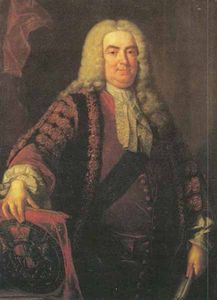| Submit | All submissions | Best solutions | Back to list |
PPATH - Prime Path |

The ministers of the cabinet were quite upset by the
message from the Chief of Security stating that they
would all have to change the four-digit room numbers
on their offices.
— It is a matter of security to change such things
every now and then, to keep the enemy in the dark.
— But look, I have chosen my number 1033 for good
reasons. I am the Prime minister, you know!
— I know, so therefore your new number 8179 is also
a prime. You will just have to paste four new
digits over the four old ones on your office door.
— No, it's not that simple. Suppose that I change the
first digit to an 8, then the number will read 8033
which is not a prime!
— I see, being the prime minister you cannot stand
having a non-prime number on your door even for a
few seconds.
— Correct! So I must invent a scheme for going from
1033 to 8179 by a path of prime numbers where
only one digit is changed from one prime to the
next prime.
Now, the minister of finance, who had been eavesdropping,
intervened.
— No unnecessary expenditure, please! I happen to
know that the price of a digit is one pound.
— Hmm, in that case I need a computer program to
minimize the cost. You don't know some very cheap
software gurus, do you?
— In fact, I do. You see, there is this programming
contest going on...
Help the prime minister to find the cheapest prime path between any two given four-digit primes! The first digit must be nonzero, of course. Here is a solution in the case above.
1033
1733
3733
3739
3779
8779
8179
The cost of this solution is 6 pounds. Note that the digit 1
which got pasted over in step 2 can not be reused in the last step
– a new 1 must be purchased.
Input
One line with a positive number: the number of test cases (at most 100). Then for each test case, one line with two numbers separated by a blank. Both numbers are four-digit primes (without leading zeros).
Output
One line for each case, either with a number stating the minimal cost or containing the word Impossible.
Example
Input: 3 1033 8179 1373 8017 1033 1033 Output: 6 7 0
| Added by: | overwise |
| Date: | 2007-10-02 |
| Time limit: | 2s |
| Source limit: | 50000B |
| Memory limit: | 1536MB |
| Cluster: | Cube (Intel G860) |
| Languages: | All except: ERL JS-RHINO NODEJS PERL6 VB.NET |
| Resource: | ACM ICPC NWERC 2006 |
hide comments
|
||||||||||||||
|
2018-12-28 20:19:12
good problem for beginners...my first bfs accepted in 1 go :) |
||||||||||||||
|
2018-12-03 16:04:08
test files are weak :(( |
||||||||||||||
|
2018-11-30 08:05:29
50th ; 0.00 27M Last edit: 2018-11-30 08:05:56 |
||||||||||||||
|
2018-11-21 08:56:55
Awesome problem, got AC in first try. Took an hour to code it :( |
||||||||||||||
|
2018-09-27 10:44:37
AC in a go. bfs +implementation |
||||||||||||||
|
2018-09-21 04:49:00
Nice problem easy bfs AC with 0.01s |
||||||||||||||
|
2018-09-11 10:56:25
easy bfs 0.07 |
||||||||||||||
|
2018-08-31 08:27:47 tanardi gunawan
easy problem using string ac in 0,19s!!! |
||||||||||||||
|
2018-08-24 13:11:26
Pretty Straightforward problem wasted 3 hours trying different implementation for calculating shortest distance but error was in logic to check 'one digit difference' between prime numbers; *ultimate facepalm moment* but still AC in 1 go :P |
||||||||||||||
|
2018-07-26 18:36:20
Good bfs problem. Store the sieve of prime numbers beforehand so you dont have to calculate all the prime numbers for every test case. |
||||||||||||||


 RSS
RSS